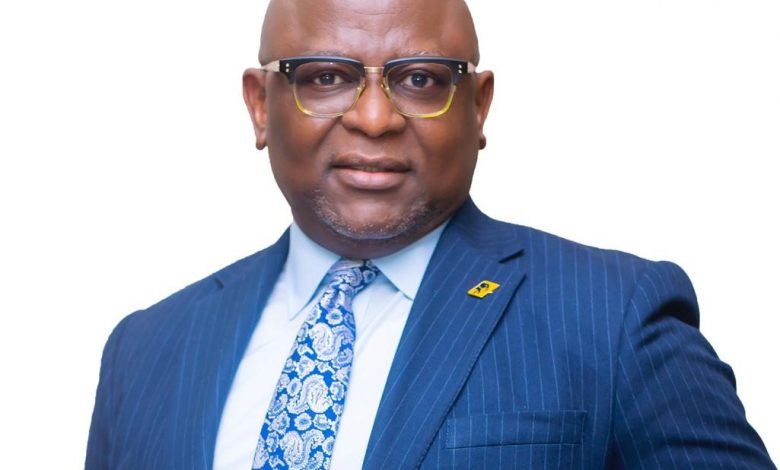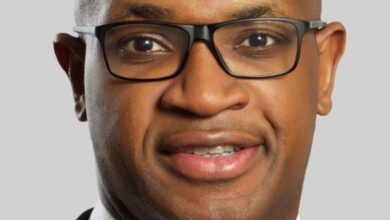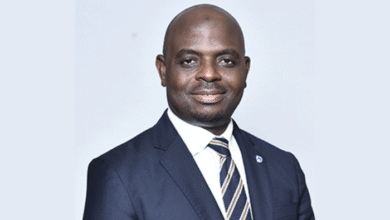The Return of FBNH: Q2 2023 Profitability Grows By 1,938%

First Bank of Nigeria Holding Company (FBNH) has seen a blustery rise in its profitability in Q2 2023 as operating performance skips forward on improved corporate indices. FBNH, in its latest Q2 2023 results, saw a rise in its return on equity (RoE), a positive fall in its cost-to-income ratio (CIR), and a commendable dip in its non-performing loans ratio (NPLR).
At a time when the principal shareholders of the business were struggling for the soul of the lender, the institution itself casually ignored the lively tussle of who was the top investment dog in the pack. The lender’s management/exco appears to have stayed free of the highly strung emotions and focused on the numbers rather than the politics, and so far, the gambit has worked, or has it?
In the main, the bank’s numbers have been impressive with sizable quarterly gains on all fronts, but in our tradition, it is appropriate that we point out a few niggling concerns that still billow like clouds, without disrupting the parade that this result deserves.
While principal shareholders grappled with share purchases like Greco-Roman wrestlers, the Holdco took advantage of rising domestic inflation and towering interest rates to nick gains from widening interest margins. The Holdco’s net interest income rose from N152.9bn in H2 2022 to N237.9bn in H2 2023 or a 55.2% net income rise. Interest Income rose from N226.4bn in H2 2022 to N383.3bn in H2 2023. The rise in net interest income suggests that the lender has done well in its core lending business, but then, the trouble here is that rising interest rates tend to hide the creeping possibility of riskier loans. As interest rates rise the probability of loan defaults also increases. Turning a profit in a high interest rate environment with falling consumer disposable income sets the stage for riskier business sustainability. There is nothing on the trend so far to suggest that will be the case, but an analyst note ought to acknowledge the fact, if only to remind the market and the institution of the risk.
While banks make short-term windfall gains from interest rate increases, the risk of loan default serves as a backstop. According to one analyst at a corporate finance department of a Lagos-based Investment Bank ‘Rising net interest margins have put smiles on the faces of bank treasurers but you must understand that higher interest rates reflect higher risks and higher risks mean higher potential defaults and higher defaults take your books to the cleaners, somewhere nobody wants to be if your loans are good!’.
In other words, FBNH’s rising interest margins are a good support for its comprehensive income statement (P&L) in the short term (for example, profit before tax rose by 213.8% between H1 2022 and H1 2023), but the Financial Holdco’s managers need to take a more aggressive approach to keeping loan quality prim. The Holdco’s cost of risk (CoR) grew in H2 2023 to 1.9% from its 1.3% in 2022 thereby creating downside adjustments to its ranking on the Proshare Banking Strength Index (PBSI) for 2023, but larger earnings and higher loan-to-deposit ratio (LDR) should counter the downward pressure of its CoR on the Index. In addition, the Financial Holdco has seen its book value per share rise from 24.7 in H1 2022 to 38.4 in H1 2023, thereby pushing its price-to-book value (P/BV) ratio below one to 0.6, indicating possible hidden value opportunities especially since the Holdco’s price-to-earnings (p/e) ratio is 2.7X as against the market’s average of 8.6X. The group’s gross earnings are forecast to grow by 12.5% per year with earnings growth of 9.72% for 2023. However, barring heavy insider market actions, the 2023 spike in the lender’s share price is expected to decline but will still be above the 2022 and 2023 average.
All About Note 9
Note 9 in FBNH’s statement of comprehensive income in H1 2023 is instructive. The note shows that the lender saw a 1,938% rise in its FVTPL (fair value through profit and loss) from N11.27bn in H1 2022 to N229.74bn in H2023. The lenders FVTPL has swung upwards on average over the last four half year periods between 2020 and 2023. FVTPL rose from N7.31bn in H1 2020 to N19.31bn in H1 2021 and down to N11.27bn in H1 2022 before the recent towering rise.
The massive P&L adjustment reflects large gains in revaluation of the HoldCo’s FX assets in derivative markets. The rise represents a one-off transaction gain which would normally be discounted in determining its share price and valuation. ‘If a tree does not make a forest or a swallow make a flight, then this upward glide in FBNH income does not tell a story but represents a paragraph’ notes an equity market analyst with Capital Express Securities in Lagos. According to the analyst ‘FX derivative valuations can be windy and blow for or against you, this time the Holdco has had the benefit of a boom, it needs to protect itself against the potential of a bust. Every Ying has got its Yang’, he noted. The bank is mindful of this from representations received.
Key Highlights in H1 2023
- Gross earnings rose by +82.8% to N656.55bn in H1 2023 from N359.20bn in H1 2022
- Profit before tax went up by +213.83% to N206.26bn in H1 2023 from N64.72bn in H1 2022.
- Customers’ deposit climbed by +43.46% to N9.04trn in H1 2022 from N7.325trn in H1 2022.
- First Bank’s total assets increased by +48.86% from N9.53trn in H1 2022 to N14.18trn in H1 2023.
- Net interest income grew by +55.2% to N383.29bn in H1 2023 supported by a +69.33% growth in interest income and a +98.74% growth in interest expense.
- Operating expenses grew by +24.50% from N185.95bn in H1 2022 to N231.56bn in H1 2023.
- FBN Holding’s Shareholder’s equity rose by +55.44% to N1.38trn in H1 2023 from N886.74bn in H1 2022
- Retained earnings inched up by +63.74% from N354.38bn in H1 2022 to N580.10bn in H1 2023.
- Earnings per share improved by +234.84% to N5.19k in Q2 2023 from N1.55k in Q2 2022.
Key Highlights in Q2 2023
- PBT climbed by +414.14% to N150.16n in Q2 2023 from N29.21bn in Q2 2022
- PAT increased by +467.68% to N137.15bn in Q2 2023 from N24.16bn in Q22022.
- Fees and commission income grew by +24.34% to N45.98bn to surpass N7.58bn fees and commission expenses which grew by +27.63%.
- Impairment charge grew by +290.89% to N40.73bn in Q2 2023 from N10.42bn in Q2 2022.
- Net interest income rose by +56.63% to N125.48bn in Q2 2023 from N80.12bn in Q2 2023, driven by interest income.
- Operating Expenses grew by +28.38% to N120.39bn in Q2 2023 from N93.78bn in Q1 2022.
Share Price Movement
Over the last eight weeks, the Holdco has seen rising volatility along a bullish trend. In other words, technical analysts have observed that from a bearish channel witnessed between February and May 2023, before June saw a sustained breakout from a N12 per share old resistance price to a recent N19 per share new resistance. The breakout may have represented the period when the HoldCo’s significant shareholders engaged in a battle for its soul. The struggle for equity dominance led to a consolidation of ‘sleeper’ shares by an erstwhile HoldCo chairman and the purchase of additional shares by a new aggressive acquirer with aspirations of becoming the new chairman of the institution. The old money and new money battles appear to have raised the lender’s share price but within what still appears to be a sensible price range as its p/e remains below the market average. However, the lender’s year-on-year return of 80.5% slightly lags that of the banking industry with a one-year return of 82.6%. Nevertheless, both returns lead the NGX one-year market return of 43.2%.
FBNH’s half-year stock price rally settled at N17.05k on June 30, 2023 (now N19.85), with a then year-to-date (YTD) return of +56.42%. The leap in share price reflected the market action of a significant shareholder who consolidated N4.5bn worth of shares into a special purpose vehicle (SPV), Barbican Capital Limited owned by two children of a former chairman of the HoldCo, the market action bumped the stock price up to N22.30k on July 10, 2023, and kicked year YTD return to 65.60% as of July 20, 2023, higher than the NGX return of 24.74% (see chart 1 below).
Chart 1

Gross Earnings
In H1 2023, the HoldCo raised gross earnings to N656.55bn, representing an +82.8% growth from N359.15bn in H1 2022. The rise stemmed from a growth in non-interest income (net gains from FVTPL which grew by 1,938% to N229.74bn in H1 2023 and N231.79bn in Q2 2023), caused by the currency revaluation that occurred when the new administration of President Bola Tinubu decided on the harmonization of all official exchange rates. Market intelligence suggests that the gains came from the lender’s derivative assets. The core banking operation saw a growth of +55.2% in net interest income to N237.33bn despite the 98.7% spike in interest expense against the +69.3% growth in interest income. Analysts view the revenue growth as a windfall gain, which is unlikely to be repeated in future quarters, given that in Q1 2023, the Holdco witnessed a N2.04bn loss from financial instruments at FVTPL (see chart 2 below).
Chart 2
Profitability
The HoldCo’s profit jumped three times its previous value in H1 2022, profit before tax and profit after tax rose to N206.26bn and N187.18bn respectively, supported by gains from financial instruments despite the fall in other operating income (-43%), foreign exchange income (-696%), and +25% rise in operating costs. On a quarterly basis, profit before tax (PBT) and profit after tax (PAT) grew by +414% and +468% to N150.16bn and N137.12bn. The group’s electronic banking income bounced back up to N34.01bn, representing a +33% rise from N25.53bn in H1 2022 when it dipped by -11% from the H1 2021 figure. Furthermore, the notable growth in after-tax profit pulled up earnings per share (eps) to N5.19k from N1.55k in H1 2022, an indication of the group’s potentially strong shareholders’ return (see chart 3 below).
Net Interest Margin (NIM)
FBNH’s net interest margin recovered in H1 2023, rising to 5.8% but still below its 7.5% in H1 2019. After the dip to 4.4% in H1 2021, the group leveraged a high interest rate environment to grow net interest income. During the period, analysts observed that the naira redesign policy increased First Bank’s demand deposits, hence raising interest expense by +98.7% compared to a +69.3% increase in interest income (see chart 4 below).Chart 4

Non-performing Loans (NPLs) Vs. Impairment Charges
The group has lowered its non-performing loans (NPLs) over the last four years, dragging it to 4.3% in H1 2023 from 14.5% in H1 2019, suggesting better asset quality and lower default rates. However, the group’s impairment charge has worsened, especially in H1 2023 where it rose by +165% to N57.63bn, driven by larger provision made on loans and investment securities valued at N44.59bn and N5.88bn respectively. The hike in impairment charges could be attributed to rising default rates in emerging markets as countries battle with currency depreciation and mounting inflation (see chart 5 below).

Cost-to-Income Ratio (CIR)For the first time in five years, the group’s cost-to-Income Ratio (CIR) fell below 65%. The group has grappled with rising operating expenses in the last few years, with CIR reaching a peak of 70.3% in H1 2019, well above the industry average. The significant growth in earnings drowned the +24.5% rise in operating expenses in H1 2023, bringing about a relatively low CIR of 46.80% in H1 2023. Despite the fall in CIR, analysts expect the group to explore cost containment strategies to avoid a return to previous high levels (see chart 6 below).

Total Assets
The HoldCo remains one of the largest local lenders by asset size, with total assets rising to N14.18trn in H1 2023, driven by loans & advances, investment securities and cash & balances with the CBN. Analysts noted that the cash & balances held with the CBN grew by +13.5% due to large discretionary cash reserve requirement (CRR) debits and the revised Statutory CRR of 32.5% (see chart 7 below).
Chart 7

Return on Asset (RoA) and Return on Equity (RoE)
Riding on the back of improved earnings, return on equity (RoE) and return on asset (RoA) leapt to 31.5% and 3.0% in H1 2023, the highest numbers in five years. Before the H1 2023 rise, the HoldCo’s ROE and ROA tumbled to 9.9% and 1.0% in H1 2021 and recovered in H1 2022 to 12.80% and 1.20% respectively. The improvement may represent better utilization of shareholder’s fund and available assets (see chart 8 below).

Of Coat Tails, Nitpicking and Shadow Boxing
In August the Financial Holdco would be holding its Annual General Meeting (AGM) with a few items top on the agenda. The first world be a capital raise by way of a Rights Offer (or existing shares increasing their shares in the business). At a time of shareholder shadow boxing, the Rights Offer would likely be fully subscribed with bigwigs buying the Rights of smaller shareholders incapable of paying for their Rights.
The Rights Issue could be underwritten on terms dictated by the directors subject to regulatory authority approval.
The shareholders would be asked to approve a waiver of their pre-emptive rights to any unsubscribed shares under the Rights Issue in the event of an undersubscription. This means that if a shareholder cannot pay for the Rights allotted to him, he or she loses the right to ask for those shares. In other words, somebody else can buy them.
Of interest to analysts would be the issue of electing two new directors to the Holdco’s Board of Directors. The proposed new directors are Mr. Samson Oyewale Ariyibi as an Executive Director and Mr. Femi Otedola, CON, as a Non-Executive Director (he was appointed on July 9, 2023, subject to CBN and shareholders’ approvals). The emergence of Otedola on the Board of the Holdco sets the stage for fresh and interesting times at the institution as the energy baron had laid siege on the shares of the lender to become its preeminent stakeholder in 2022, taking on some of the Holding Company’s previously entrenched interests. Initially, the fear was that the move was a ‘greenmail’ manoeuvre as Otedola had insisted that he had no interest in being on the Holdco’s board. However, with the business mogul’s U-turn sleeping equity interests have woken up to reposition themselves. The consolidation of certain trusts and nominee account holdings has created a new chief on the bloc with Barbican Capital Limited (the Otudekos), a company owned by the children of a former chairman of the Holdco admitting to 13.3% equity stake in the Financial Holdco, the powerplay will be intense, especially if Otedola pushes for Board Chairmanship.
Political realignments that had previously been fragile will begin to crystallize into stronger strategic camps reflecting the strong hands of Mike Adenuga (Chairman Globacom), Tunde Hassan-Odukale (Leadway Assurance), the Otudeko’s (Barbican Capital), and Femi Otedola (with notionally a 5.57% equity stake as of H1 2023).
The internecine struggles are not dealbreakers as the checks on insider actions would improve corporate governance and hopefully extract larger shareholder value. As an observer put it ‘we all must hang on to the coattails of FBNH’s corporate titans as old war horses reemerge and new generals stand their grounds, this is not a time to nitpick, with FBNH trading at a price-to-earnings ratio of 3.0 times as against African banks industry average of 6 times, investors can squeeze value juice, as long as the internal battles remain civil, calm and constructive.’
End Note – Making Strategy Matter
FBNH has shown resilience and restored its Proshare Tier 1 Bank credentials but that does not mean it has overcome all the challenges related to ensuring corporate sustainability. The HoldCo still needs to contend with ensuring sustained organic growth in profitability, cleaning up of a few off-balance sheet contingent exposures and obtain a clean bill of health statement form the industry regulator, the Central Bank (CBN), over its previous forbearance status. The Holdco’s improved financial status is commendable, however, remains fragile as a large part of its H1 2023 performance was attributed to its FVTPL.
Sustaining the FX derivatives boon is unlikely. The HoldCo may need to grow its lower-cost deposit accounts and sustainably improve its non-interest income line item through growing incomes from Investment Banking-related activities. Rising operating costs need to be cut back (this may be difficult in a period of rising energy and transportation costs, and likely upward wage adjustments), but the institution like peers must find ways of leveraging technology to reduce expenses without jeopardizing the customer’s transaction journey experience.
The HoldCo’s five-year strategic plan seems to be well on track, but beyond planning is execution, the lender must ensure agility and flexibility in an environment of growing uncertainty. In the words of a former banker, and current equity market analyst ‘If the corporate plan and strategy are going to count, they must be nimble enough to counter economic shocks, strong enough to resist policy headwinds, and clever enough to support sustainability. Indeed, in the long run, we are all dead, but for now, this is no time to die’.




